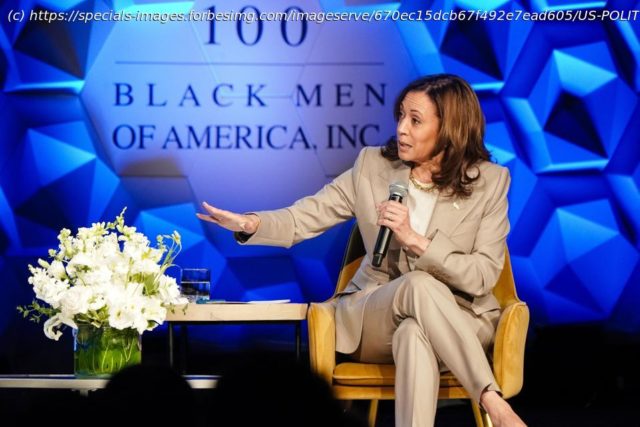Can Kamala Harris’s crypto agenda empower Black men and counter Trump’s appeal? Explore the battle for economic equity in the digital age in this in-depth analysis.
With 21 days left until the November 5th election, Vice President Kamala Harris’s campaign is navigating tightening polls and narrow margins. Despite Democrats winning the popular vote in recent elections, outcomes often hinge on key swing states due to the Electoral College. Some pollsters question whether Trump’s support has peaked and acknowledge that Harris still has room to continue her upward trend, especially after gaining momentum following Biden’s exit and endorsement. With key affinity groups critical to her success, Harris will be focusing her efforts on securing their support as election day approaches.
The unveiling of the agenda has drawn a mix of cheers and jeers, highlighting the intense scrutiny Harris has faced throughout her historic and consequential campaign. Despite having just over four months to run a national campaign from beginning to end—a feat that most presidential candidates in modern history have had over a year to prepare for—Harris continues to be evaluated under a microscope. Yet, she has vowed to meet these challenges head-on, promising to connect with each demographic on their own terms.
Historical Voting Patterns
In the 2022 midterm elections, Black voters overwhelmingly supported Democratic candidates. According to Pew Research, 93% of Black voters backed Democratic candidates, with only 5% supporting Republicans. This high level of support was consistent across both Black men and women.
White voters, by contrast, showed a notable gender divide:
White men: 64% voted for GOP candidates, while 34% supported Democrats.
White women: 51% voted Republican, with 48% backing Democrats.
This data underscores the strong alignment between Black voters and the Democratic Party, even as white voters—particularly white men—lean more heavily toward Republican candidates.
An October 2024 CBS News/YouGov poll reveals Harris holds a similar level of support among Black voters as Joe Biden did in 2020, with 87% of Black likely voters supporting Harris and 12% favoring Trump. This mirrors CNN’s 2020 exit polls, which also showed that 87% of Black voters supported Biden, while 12% backed Trump. A previous New York Times/Siena College poll, however, showed slightly lower support for Harris, with 78% of Black voters supporting her and 15% backing Trump.
Economic Disparities and the Need for Targeted Solutions
Adewale A. Maye, in his 2023 report on racial economic disparities, highlights how post-civil rights legislation has failed to close the wealth gap between Black and white families. Black families hold only one-eighth the wealth of white families, and Black unemployment has remained consistently high for 50 years. Maye underscores the unique economic challenges Black men face, including wage inequality, discriminatory hiring, and the long-term impacts of over-policing and incarceration, which have deepened generational poverty.
“The United States government has a poor record in meeting the needs of black communities,” explains Jomari Peterson, Executive Strategist, Podium (A FiHub Project). “From the support of slavery to Jim Crow to Cointelpro and Red Lining, Black men and communities have ample reason to be distrustful of a government that often-institutionalized systems that don’t consider their needs.”
Without such targeted policies, Maye warns, structural racism will persist, undermining efforts to achieve racial and economic equity. “This is why the recognition of blockchain based digital assets or cryptocurrencies are important to the black community, says Peterson.






